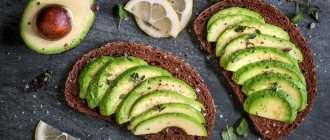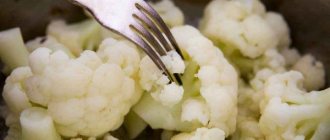We all know that milk contains many useful microelements and vitamins necessary for the full development of the baby and for the normal functioning of all body systems.
But can the same be said in relation to fermented milk products, which are presented in a wide range on store shelves? If the benefits of cottage cheese are undeniable, then the use of fermented baked milk during breastfeeding causes concern for many women. Let's look at this product in more detail.
The benefits of fermented milk products
Natural animal protein, coming from fermented milk products, has a beneficial effect on the body of infants and women during the lactation period.
It is with the active participation of animal protein that milk is formed in the body of a nursing mother. Thanks to the whole complex of vitamins and microelements contained in dairy products, they:
- strengthens the bones of the newborn;
- ensure the healthy condition of the child’s skin;
- normalize blood clotting.
Microorganisms contained in fermented milk products have a beneficial effect on the functioning of the gastrointestinal tract of both the baby and the nursing mother. Consumption of such products prevents the occurrence of colic, increased gas formation and constipation.
Therefore, the intake of all these beneficial substances into the body of a nursing woman in the required volume is very important for the full development of the baby.
For many women, fermented milk products help them quickly restore their previous shape after pregnancy and the birth of a baby. The greatest benefit comes not from whole milk, but from fermented milk products.
Of course, in the list of similar products, fermented baked milk occupies one of the top positions.
Helpful or Harmful?
When making fermented baked milk, baked milk is fermented using special mushrooms and bacteria.
Thanks to dairy products, the balance of animal protein is restored, which is actively consumed by the female body during breastfeeding to produce milk. Protein from fermented baked milk is absorbed much better than from whole milk.
In addition to protein, fermented baked milk contains a large number of various microelements, including phosphorus, calcium, magnesium and others. One glass of it satisfies the nursing mother’s daily requirement for phosphorus by 20% and calcium by 25%, which far exceeds the benefits of other sour milk products.
In addition to microelements, it includes fats, carbohydrates, enzymes, organic acids, vitamins A, D, C, B. The balance of vitamins improves the process of absorption of various microelements by the body. And they, in turn, affect the formation of the baby’s musculoskeletal system, the mother’s postpartum recovery process, skin structure, and the health of hair and teeth.
Read also:
What kind of pizza can a nursing mother eat and should she deny herself the pleasure?
Enzymes and bifidobacteria contained in fermented milk products improve the functioning of the mother’s intestines, suppress pathogenic flora, and help prevent dysbiosis in the baby. Lactic acid stimulates the functioning of the kidneys and gastrointestinal tract.
Due to the higher percentage of fat content and the presence of additional bacteria, fermented baked milk is better absorbed by the body than other lactic acid products.
Such a high fat content also has a certain disadvantage: women who have gained much more weight during pregnancy are not advisable to consume such a fatty product. Such women are recommended to periodically arrange fasting days during breastfeeding, during which fermented baked milk should be replaced with kefir.
Now let’s look at the alcohol content in fermented milk products. All of them are produced by one of two methods:
- fermented milk (cottage cheese, fermented baked milk, sour cream, yoghurts);
- mixed, i.e. alcohol + fermented milk fermentation (kumys, kefir).
In the first case, when milk sugar is broken down, lactic acid is released, which, interacting with casein, forms flocculent compounds that precipitate. In the second case, carbon dioxide and alcohol are formed in products along with lactic acid, which significantly increases their digestibility. The alcohol content in such products is approximately 0.04–0.05%.
For comparison, black yeast bread and apples contain up to 0.1% alcohol, and grape juice up to 0.35%.
Ethyl alcohol is a natural metabolite, that is, it is formed in the body of every person during the metabolic process.
Even in those people who have never drank alcohol in their lives, the alcohol concentration in the liver and blood is 0.003–0.015%.
From all that has been said, we can conclude that with the method of fermenting milk that is used to produce fermented baked milk, alcohol is not formed in it. But the alcohol content in kefir is negligible and corresponds to the norms of the natural alcohol content in various products. Therefore, the consumption of fermented milk products by a nursing woman cannot have any negative effect on the body of a newborn baby.
Read also:
Is it possible to eat caviar or sushi during the postpartum period while breastfeeding?
Manufacturing technology
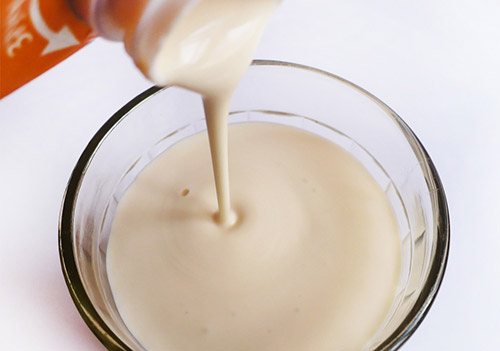
Ryazhenka is prepared from baked milk by fermenting it, using fermented milk microorganisms and special fungi.
To make fermented baked milk, milk is first simmered for a long time. This ensures that almost all the liquid evaporates. Thanks to this process, the content of useful elements in the fermented milk product increases significantly.
Note that as a result of thermal exposure, all pathogenic bacteria die. From this point of view, fermented baked milk is an absolutely safe product.
Advantages of ryazhenka
The high fat content of fermented baked milk and the microelements included in its composition contribute to its more active absorption, unlike kefir.
Ryazhenka is a type of fermented milk product that has a delicate taste and contains many useful microelements. This gives the product a number of useful properties.
- Just one glass contains 20% of the daily phosphorus requirement for a nursing woman and 25% of the calcium requirement. This is many times more than in other fermented milk products, that is, the body will not experience a lack of calcium and phosphorus.
- The product is rich in vitamins A, B, C, E and PP, iron, sodium, potassium, magnesium and other useful microelements.
- Milk fat in fermented milk products ensures better absorption of calcium. Thanks to lactic acid, the kidneys and gastrointestinal tract function better.
- Regular consumption of fermented baked milk leads to an improvement in appetite, the product quenches thirst and hunger.
- Helps strengthen the immune system.
- Improves the condition of the hair, nail plate, and skin.
- It has a beneficial effect on the cardiovascular system and helps reduce cholesterol levels.
- The content of bifidobacteria in the fermented milk product improves the functioning of the intestines of a nursing woman and prevents dysbiosis in newborn babies.
- Promotes better production of breast milk in a nursing woman.
Why does a nursing mother need to consume kefir?
There are several reasons indicating that a modern mother needs to consume kefir. So this is:
- Improving intestinal microflora, normalizing the functioning of the gastrointestinal tract;
- Improved digestion;
- Normalization and improvement of metabolism;
- Vitamin therapy, since kefir is a fermented milk product that contains vitamins such as: A, B, C, E and H. In addition, by consuming kefir, a young mother saturates her body with useful vitamins and minerals, namely calcium, potassium , iron, fluorine, magnesium, iodine, zinc and more;
- Kefir is a good stimulator of lactation, so it is recommended for use by absolutely all nursing mothers.
Flaws
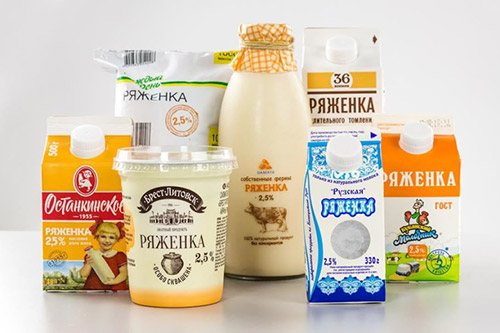
In addition to its advantages, fermented baked milk also has some disadvantages.
- Eating a product that is not fresh or of poor quality can cause food poisoning in a woman and her baby.
- Due to its high calorie content, this fermented milk product contributes to the gain of excess weight by a nursing mother.
Recommendations from pediatricians
You can start trying ryazhenka while breastfeeding even before the baby is one month old. Pediatric doctors recommend that nursing mothers start using the product 2 or 3 weeks after the baby is born.
For the first dose, you need to limit yourself to a small portion, not exceeding 100 grams of the product. This is enough to see how a child’s body with breastfeeding will react to an innovation in the diet. In addition, when consuming fermented milk products, there is a slight change in the taste of breast milk, and the baby does not always like this.
Experts do not recommend drinking this drink on an empty stomach during lactation, since in this case its laxative effect appears.
In the absence of a negative reaction from the baby, fermented baked milk can be included in the diet of a nursing mother.
The daily consumption rate of this fermented milk product should not exceed 200 milliliters. In case of overdose, problems may arise in the baby's gastrointestinal tract.
Ryazhenka cannot replace main dishes; it should be drunk between breakfast, lunch and dinner.
It is necessary to drink only high quality fermented baked milk.
You cannot stock up on fermented milk products for future use; you must buy new packaging every day.
It is not recommended to eat fermented baked milk with granulated sugar, jam or honey. Such additives can cause increased gas formation and colic in a newborn baby.
As an additive, you can use fruit or you can drink a fermented milk drink with a small piece of rye bread.
During the period of consuming fermented baked milk, a nursing woman should exclude other foods containing protein from her diet. These include eggs, meat, fish and products made from them.
If eating fermented baked milk caused a negative reaction in the baby, and the skin became covered with an allergic rash, then the mother will have to give up this product for a while.
But this does not mean that you need to exclude all fermented milk products from your diet. Ryazhenka can be replaced with yogurt or cottage cheese, prepared independently. But for their preparation you should use goat's milk, since it is less allergenic.
A nursing woman can eat products prepared at home with her own hands without fear for her health and the health of her baby.
Ryazhenka during breastfeeding

The birth of a baby is not only a joy for every young mother, but also a great responsibility. After all, now you need to carefully monitor your diet. Inexperienced mothers immediately have a lot of questions, including: is fermented baked milk allowed when breastfeeding a newborn.
Fermented milk products - benefit or harm?
Everyone knows that natural cottage cheese, sour cream, kefir are very beneficial for human health. But is this true for a nursing mother? Let's figure it out. Fermented milk products, which include fermented baked milk, help saturate the body with calcium and phosphorus.
It is useful to consume fermented baked milk during breastfeeding, because it is very important for both mother and child. The mentioned substances are building materials for the baby’s skeletal system and teeth. Mom also needs these minerals to maintain her strength and keep her teeth intact.
In addition, fermented baked milk does an excellent job of normalizing digestion, as it contains special enzymes. This is very important for mothers who often cannot adjust their bowel movements after childbirth. This is where fermented milk products come to the rescue.
But you should choose the right fermented baked milk. Ideal if you do it yourself. But not everyone can do this. Therefore, when you come to the supermarket, you should pay attention to the composition and date of manufacture of the product. If the package indicates a shelf life of more than 7 days, then the product contains a preservative that is undesirable for breastfeeding.
It is best to consume fermented baked milk between meals as a snack. It is not advisable to combine this product with other protein dishes. The best addition to a glass of fermented baked milk would be baked goods.
Is it possible to make fermented baked milk while breastfeeding?
Despite all the benefits of fermented baked milk, it also has contraindications. It is not advisable to drink it if you have an intolerance to dairy products or an allergic reaction. After all, there is a possibility that the baby’s body, just like the mother’s, will react to this product.
In the first month after birth, you should drink fermented baked milk while breastfeeding with caution. It is advisable to try it for the first time no earlier than the baby is two weeks old. You need to start with 100 ml of product. If the child is cheerful and active, his tummy does not hurt, then next time the mother can drink a little more fermented milk drink, bringing it up to half a liter per day, but no more.
It will be useful for young mothers who care about their figure to know that fermented baked milk is a fairly fatty product, and its abuse can lead to additional weight gain.
Contraindications for use

Despite the fact that fermented baked milk is a useful product, in some cases it is contraindicated. You should stop using it:
- if there is an allergic reaction to cow's milk protein in a nursing mother or baby;
- for gastritis with increased acidity and peptic ulcers;
- if a nursing woman is overweight, since fermented baked milk is high in calories;
- with increased gas formation in an infant caused by consumption of fermented baked milk.
Choosing a quality product
For a woman during breastfeeding, it is very important that the products she eats are of high quality. This means that you need to choose wisely, paying attention to the following:
- the naturalness of the product and the absence of preservatives and other harmful components in its composition is evidenced by the expiration date, which should not be more than seven days;
- fermented baked milk must be sold either in glass bottles or in paper packaging without signs of opening, swelling or other damage;
- To make high-quality fermented baked milk, whole milk, kefir grains and microelements of natural origin should be used;
- a fresh product should have a uniform consistency and delicate taste, there should be no lumps in it.
How to choose?
Pay attention to the short shelf life (no more than 14 days) - this guarantees the absence of preservatives and aggressive heat treatment. The shorter the curd or fermented baked milk is stored, the more natural it is. Choose products with a characteristic consistency and appearance.
Cottage cheese has a granular structure and is white in color with a creamy tint. Low-fat sour cream should not look like a soufflé - a dense, motionless texture will indicate the presence of thickeners. High-quality fermented milk products smell fresh and have a slight sour taste.
Ryazhenka as part of other healthy dishes
Ryazhenka can be consumed as a stand-alone drink, or it can be used in the preparation of other dishes. You can use it as one of the components of salad dressing. In this case, you should use a low-fat fermented milk product.
Surely most nursing women and their babies will not refuse a fruit dessert seasoned with fermented baked milk.
But first you need to make sure that the fruits do not cause an allergic reaction in the newborn.
Can a nursing mother have fermented baked milk?
So, to the question: “Can a nursing mother have kefir?” an affirmative answer was received - yes. Now you need to decide whether a nursing mother can have fermented baked milk.
Ryazhenka is also made by fermenting milk, but only already baked milk. Ryazhenka has a higher percentage of fat content than kefir, which should have a beneficial effect on the body of a nursing mother.
It is known that 250 ml of fermented baked milk contains 20% of the daily norm of the beneficial trace element phosphorus, as well as 25% calcium. In addition, by consuming fermented baked milk, the body is saturated with such useful microelements and vitamins as: A, B, ascorbic acid, potassium, magnesium, phosphorus, sodium. Fermented baked milk also contains a large amount of healthy protein and fats.
The only negative is that fermented baked milk is strictly contraindicated for those young mothers who have gained a large number of kilograms during pregnancy and are suffering from excess weight. This also includes (as contraindications) individual intolerance to cow protein.
It is allowed to consume kefir and fermented baked milk not as an independent product, but as a dressing for salads and in the form of a sauce.
Cooking fermented baked milk at home
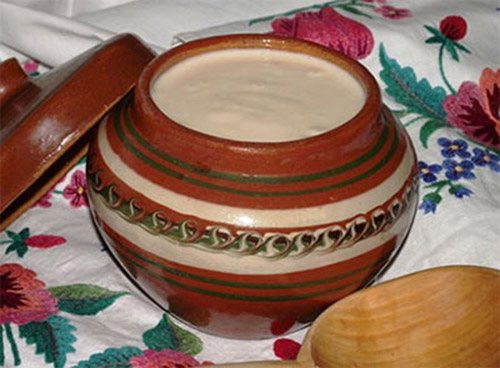
It happens that the body of a nursing mother or baby reacts sharply to preservatives and factory-made products. Then you can drink homemade fermented baked milk.
For this you will need:
- 1 liter of milk with a fat content of 2.5%;
- 200 grams of natural yogurt or sour cream.
Step-by-step preparation:
- pours milk into clay pots;
- put the pots in an oven preheated to 150˚;
- milk should simmer in the oven for 2.5 hours;
- From time to time, you should open the oven and melt the crust that forms on the surface of the milk to avoid burning it;
- after the milk has acquired a characteristic beige hue, remove the pots from the oven;
- add one tablespoon of natural yogurt or sour cream to each of the pots;
- Cool the contents of the pots to room temperature, then put the drink in the refrigerator for about 9 hours.
After the specified time, we take the ready-made fermented baked milk out of the refrigerator. Such a drink will benefit both the nursing woman and the rest of the family. But the homemade fermented milk product must be consumed within two days, since it cannot be stored for a long time.
Can a nursing mother have fermented milk products?
No one doubts that fermented milk products are allowed during breastfeeding. But how to choose the product on the counter that will benefit the nursing mother and baby. Today, the variety of such products is amazing and difficult to understand. Which fermented milk products can be consumed safely while breastfeeding, and which ones are best postponed until the end of breastfeeding?
The benefits of fermented milk products during breastfeeding
Lactic acid products play an important role in the nutrition of any person, including mothers and babies.
- Helps saturate the body with a mineral such as calcium. For a growing organism, this substance is extremely important, as it is involved in the formation and strengthening of the musculoskeletal system. And for nursing mothers, a lack of calcium greatly affects the health of teeth, bones, and the beauty of hair, nails and skin.
- Removes toxins from the body.
- It has a positive effect on metabolism and helps get rid of extra pounds.
- Improves stable functioning of the gastrointestinal tract, relieves constipation, and helps maintain beneficial microflora.
- If you consume fermented milk products in moderation, it will help get rid of bloating, gas and reduce colic in your baby.
- Such products help strengthen the immune system and increase the body's resistance to viral and infectious diseases.
- For a nursing mother, a big plus is that “fermented milk” helps to increase and stabilize lactation.
These beneficial properties apply to all types of fermented milk products.
But with breastfeeding, you need to pay attention to other nuances, because even healthy food can be harmful if you consume it immoderately or choose the wrong type of product
Possible harm to the baby
The main harm is the occurrence of allergic reactions to cow's milk protein. This type of allergy in newborns is rare, but this possibility cannot be ruled out.
Yes, in terms of the occurrence of negative reactions, fermented milk products are much safer than whole milk, since the milk protein in its composition is in a slightly modified form, but if the body is prone to allergies, then even this can be dangerous.
You can protect your baby from allergic reactions using a competent approach to introducing dairy products into the diet. All new food is introduced into mom’s menu gradually, in small doses. With this approach, you can see the manifestations of allergies at a very early stage, confirm the diagnosis with tests and prevent serious consequences for the baby’s health.
Excessive consumption of dairy products can also cause problems with the baby’s well-being.
If you overuse kefir or cottage cheese or choose a product with a high percentage of fat, then intestinal discomfort, constipation, diarrhea or increased colic will not keep you waiting.
In general, we can conclude that there is not much harm from fermented milk products if you approach their use wisely and select the right type of product.
Which fermented milk products are good for nursing mothers?
All “fermented milk” can be divided into two groups:
- The first group includes those products that are obtained by fermentation caused by lactic acid bacteria. This includes cottage cheese, sour cream, yogurt, fermented baked milk, and yogurt. It is these products that are most useful for mothers and babies, as they are easily digestible and have a reduced risk of allergic reactions.
- The second group includes products obtained through the symbiosis of lactic acid and alcohol fermentation - kefir, kumiss, tan, ayran. These drinks contain a proportion of alcohol. When consumed in moderation, they are absolutely safe for mother and baby. But you should be more careful when using them.
When choosing fermented milk products, it is necessary to consider many factors (fat content, expiration date, grade). It must be remembered that not all products are suitable for nursing mothers and children under one year old. The main emphasis when purchasing should be on quality, and not chasing a low price.
Today on the shelves you can find the so-called “curd product”. This product is not worth buying, since it is made from vegetable fat and has practically nothing in common with traditional cottage cheese, being much inferior to it in both taste and health benefits.
Cottage cheese
Cottage cheese is a unique product that will enrich the body of a young mother and baby with calcium, easily digestible protein and many other useful substances. It is important to make sure that the product is fresh and of high quality.
- You can start eating cottage cheese in the first week after giving birth.
- For adequate nutrition, a nursing mother should eat 100-150 g of cottage cheese every other day.
- It is allowed to add low-fat sour cream, permitted fruits or berries, a small amount of honey or sugar, provided that the baby does not have allergies.
- It must be remembered that calcium is less absorbed from a low-fat product, so it is better to buy a product with moderate fat content (about 5%).
- Calcium is better absorbed in the evening, so it is better to eat cottage cheese in the afternoon.
- It’s good to make homemade cottage cheese - this will help you get a high-quality fresh product. But at the same time, it is important to monitor the fat content, avoiding too high values.
- The ideal option for consuming cottage cheese is in its natural form. It is also allowed to prepare casseroles, cheesecakes, dumplings, etc. The main thing is to choose proven recipes with approved ingredients.
Sour cream
Sour cream is an excellent product for breastfeeding. It is an excellent dressing for salads, soups, the base of sauces and gravies, an ingredient in healthy baked goods, etc.
- You can try sour cream for the first time 3-4 weeks after birth.
- The fat content of the product should be no more than 10%.
- A nursing mother can eat no more than 30-50 g of product per day.
- It is very important to look at the expiration dates: they must be normal.
- Opened packaging should be stored in the refrigerator and consumed within 2-3 days.
- If mommy has diseases such as ulcers or gastritis, then sour cream is contraindicated for her.
It’s hard to imagine a nursing mother’s diet without sour cream.
Yogurt
The variety of different yogurts is simply huge. But for a woman breastfeeding, the choice is not so great. When purchasing, you need to pay attention to the following aspects:
- You can eat yogurt already in the first week of breastfeeding.
- The fat content of the product should be up to 3.5%.
- You can use both thick and drinking natural unsweetened yogurt without additives or preservatives.
- It is better to choose a product with a minimum shelf life.
- It would be good if the yogurt was additionally enriched with lactic acid bacteria and prebiotics.
- The product can be an excellent alternative to sour cream as a sauce for salad dressing, for example.
Kefir
Kefir is the most popular fermented milk product. This drink is certainly useful for a nursing mother, but it must be consumed with caution, as it contains a proportion of alcohol (approximately 0.6-0.8%), which can affect the baby.
We recommend reading:Can a nursing mother eat cheese?
- Modern pediatrics recommends starting to consume kefir no earlier than 5-6 months after the child’s birth.
- The daily norm should not exceed 0.5 liters of product 2-3 times a week.
- The kefir must be fresh – no more than 1-2 days from the date of production. An older product may lead to constipation and intestinal discomfort in infants. You also need to remember that the alcohol concentration in old kefir is much higher.
- The fat content of the product should not exceed 2.5-3.2%.
- If the mother or baby suffers from an intestinal disorder, then drinking kefir is not recommended, as the situation with diarrhea will only worsen.
- To absorb calcium, it is better to drink kefir between meals in the afternoon. The product is ideal for an evening snack.
- The product should not be stored for a long time. Opened packaging should be consumed within 24 hours.
- It is necessary to remember that if you abuse kefir, consequences such as diarrhea in mother and child, bloating, colic and gas in the baby will not be long in coming.
- Children under one year old can drink kefir no earlier than 8-9 months of age. And it’s better to buy special baby kefir, which can be found in baby food departments or obtained from a dairy kitchen.
Today you can find special kefir for baby food on sale. It is made using a special technology that significantly reduces the proportion of alcohol in the finished product (approximately 0.1%). This kefir can be consumed during breastfeeding as early as 2-3 months of a baby’s life.
It’s good to drink kefir one day: it will relieve constipation and improve digestion. It is difficult to find such a product in the store, since they mostly contain 2-3 day drinks. But you can do it yourself.
To do this, you will need 0.5 liters of milk and 2-3 tablespoons of a special starter (ordinary kefir from the store will do). The starter is added to the milk and infused for 24 hours at room temperature.
The healthy drink is ready!
Ryazhenka and curdled milk
For those who do not like kefir, fermented milk drinks such as fermented baked milk or yogurt can be an excellent alternative. The advantage of these products is that they do not contain alcohol and are not as acidic as kefir. In addition, the low calorie content makes it possible to include such drinks in the diet of those mothers who are struggling with excess weight.
- You can drink fermented baked milk and yogurt starting from the second month of a child’s life. If the baby is not prone to allergic reactions, then in the first month you can carefully try the first portion of these fermented milk drinks.
- It is enough to drink up to 450-500 g of drink per day.
- The weekly norm is up to 1.5 liters.
- You should choose a product in a store based on its fat content and expiration date. Ryazhenka or curdled milk should be as fresh as possible and no more than 2.5% fat content.
- You should not purchase a completely low-fat product, since calcium from such food is absorbed much worse.
- You need to know that you should not drink such drinks on an empty stomach or if you have liver disease.
What fermented milk products should not be consumed by a nursing mother?
Some fermented milk drinks, such as tan, ayran, kumiss, should be consumed very carefully during breastfeeding. During fermentation, they release quite a large amount of gases. And the proportion of alcohol in such a drink is more significant than, for example, in kefir.
There is no strict ban on these drinks during breastfeeding, but you need to act wisely and not try such controversial products before the baby is 6-8 months old. And, of course, such products are not suitable for feeding children under one year old. Negative consequences may include gas, bloating, colic in infants, diarrhea, diarrhea, and heartburn in mothers.
Prohibited fermented milk products during breastfeeding include:
- Homemade and store-bought cottage cheese with high fat content (18-20%).
- Sweet curds with additives (fruits, berries, jam, etc.).
- Glazed curd cheeses.
- Fat sour cream (from 20% and above).
- Kefir, fermented baked milk, yogurt, more than 3 days have passed since their production.
- Yogurts with additives in the form of exotic fruits, various berries, artificial flavors and dyes.
Recipes for nursing mothers using fermented milk products
The beauty of fermented milk products is that they can not only become an independent healthy dish, but also go well with many types of other products, which gives room for culinary imagination.
Kefir soup with radishes
This healthy summer soup will be an excellent option for dietary okroshka. You can prepare it 5-6 months after birth, when the child’s body is stronger and ready to accept fresh vegetables with an abundance of fiber in combination with kefir.
- Kefir 2.5% – 400 ml.
- Radish – 100-200 g.
- Greens (dill, parsley, green onions) - a small bunch.
- Salt - to taste.
The radishes are cut into small pieces (you can grate them on the coarsest grater), the greens are finely crumbled. The finished dish is poured with kefir and mixed well. Add salt to taste.
You can add a little black pepper to the soup if the child tolerates this spice well
Homemade banana yogurt
This dessert can be an excellent alternative to store-bought products. Yogurt can be given to a child up to one year old as complementary food starting from 7-8 months.
- Milk 2.5% – 1 l.
- Sour cream 10% – 1 tablespoon.
- Banana – 2 medium fruits.
- Granulated sugar - 2 tablespoons.
Pour the milk into a saucepan and bring to a boil, but do not boil! Remove from heat and cool to room temperature. Add sour cream to the cooled milk, mix lightly, pour into a glass container and put in the refrigerator for 24 hours. Take out the prepared yogurt, add finely chopped bananas, sugar and beat everything together with a blender until smooth. Yogurt is ready!
Cheese casserole
- Cottage cheese (fat content up to 5%) – 800 g.
- Sour cream 10% – 150 g.
- Chicken egg – 3 pcs. If the baby does not tolerate chicken eggs well, then you can replace them with quail eggs, but doubling the quantity.
- Butter – 50 g.
- Granulated sugar - 2 tablespoons.
- Vanilla - to taste.
- Salt – one pinch.
Another variation on the theme of a popular dish for children's and diet food. You can eat such a casserole during breastfeeding as early as 2-3 months of a baby’s life.
All ingredients must be mixed and thoroughly beaten with a blender until an airy, homogeneous mass is obtained. Sugar may not be added if there is concern that the baby may develop diathesis.
If there are no such concerns, then the amount of sugar can be varied based on personal preferences. You can add raisins, dried apricots, finely grated carrots, various berries and fruits, some nuts to the mixture - the amount and type of additives depends on the age of the baby on breastfeeding and his tendency to allergic reactions. When the curd mass is ready, it must be carefully placed in a greased form.
If you use a silicone mold, it is not necessary to lubricate it with oil. Bake at 180° until golden brown.
Fermented milk products are an excellent healthy food for a young mother’s menu. But as in any other case, it is important to observe moderation and pay great attention to the quality and composition of the purchased goods.
Source: https://floragaz.ru/mamam/mozhno-kormyashchey-mame-kislomolochnye-produkty

